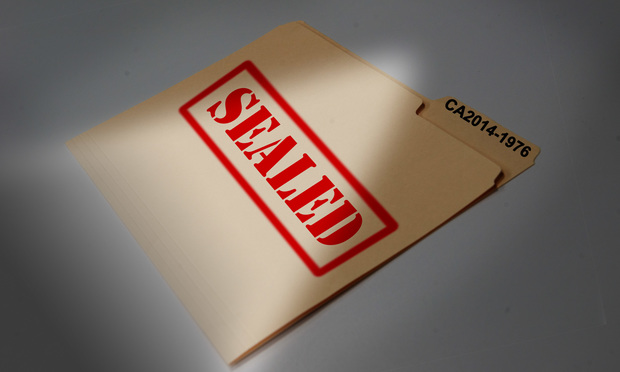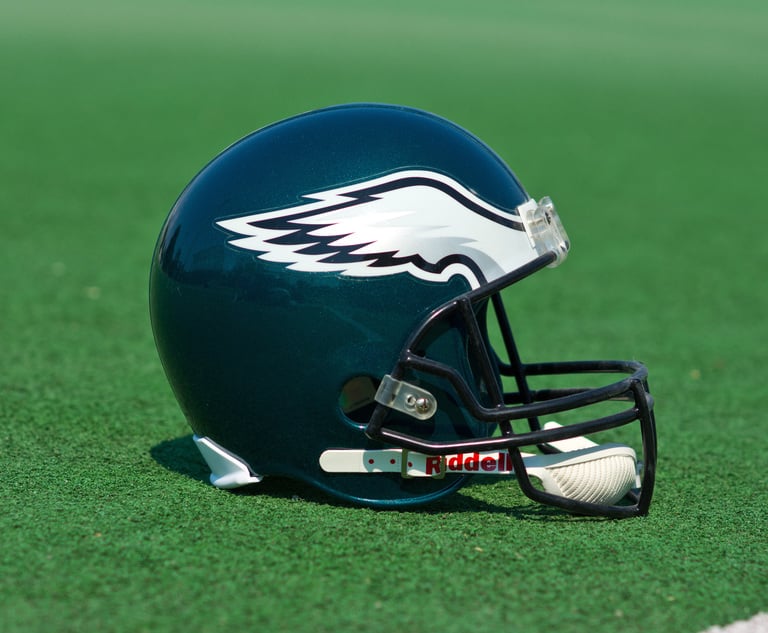Tools Maker Wants Streamed Superior Court En Banc Argument Shielded From Public View
Husqvarna cited confidential sales data as the main reason for blocking public access. But plaintiffs counsel pushed back, saying that figures dating back to the mid-2010s could not place it at a competitive disadvantage.
May 29, 2020 at 03:33 PM
5 minute read
 Photo: Jay Mallin
Photo: Jay Mallin
The outdoor power tools manufacturer Husqvarna claims the percentage of its sales in Philadelphia is too small for it to be sued in the venue. Exactly how much money that is, however, is something the company wants to keep from public view, and that's why it has asked the Pennsylvania Superior Court to block public access to an upcoming en banc argument.
On Thursday, counsel for Husqvarna sent a letter to Superior Court President Judge Jack Panella, requesting that the court's upcoming en banc oral argument session in the case, Hangey v. Husqvarna Professional Products, not be aired publicly. The letter was listed on the docket as a response to the court's May 8 order scheduling the argument in Wednesday's session and notifying the parties the session would be held through videoconferencing technology.
The letter from Husqvarna's counsel, Dickie, McCamey & Chilcote's Frederick Bode, requested that the "oral argument for this case not be published or otherwise made publicly accessible."
Husqvarna cited confidential sales data as the main reason for blocking public access. But plaintiffs counsel pushed back, saying that figures dating back to the mid-2010s could not place it at a competitive disadvantage.
The parties, according to Husqvarna's letter, had previously agreed to seal those figures at the trial level, and the three-judge Superior Court panel that initially heard the case had made accommodations so the room would be cleared of anyone except the attorneys, judges and court staff.
"Although Husqvarna's sales data was made a part of the record at the trial court level, the parties stipulated to and the trial court entered an order approving a confidentiality agreement, under which Husqvarna's sales data would be afforded confidential treatment and not made publicly available to nonparties," the two-page letter said.
However, counsel for the plaintiffs Ronald and Rosemary Hangey has quickly pushed back, filing a response later Thursday that urged the court to keep the proceedings open to the public.
The seven-page response, filed by appellate lawyer Howard Bashman, argued that the sales data in the case is from 2014, 2015 and 2016, and the claim that making this data available could put the company at a competitive advantage was "simply beyond belief."
The brief also said the argument had initially been set to take place March 18—five days before the court issued an order suspending in-person arguments due to the COVID-19 pandemic. However, the brief said, the company never took strides toward shielding those arguments from the public.
The brief further argues that the request, coming six days before the newly scheduled argument, was untimely and no reason was given for the delay. But, according to the brief, the most important reason to deny the request is that shielding the public would prejudice the Hangeys' counsel, as it would limit anyone except the arguing parties from watching the proceedings, meaning co-counsel would be unable to watch as well.
"Modern technology allows co-counsel to communicate in real time during the remote argument of an appeal just as they could do in person, but only if all co-counsel can see or hear the argument," the brief said. "Husqvarna's request would deprive anyone other than arguing counsel of the ability to see or hear the argument, thereby prejudicing counsel for plaintiffs."
In an interview Friday, Bashman also disagreed with Husqvarna's characterization of the arguments before the three-judge panel, saying the court had not made any accommodations to seal the courtroom, but rather, the case happened to be argued at the end of the day; by that time, the only person seated in the gallery happened to be a law clerk.
"To have a request to seal [the arguments] based on grounds that are this flimsy is really concerning to me," Bashman said. "It wouldn't be successful for in-person, and therefore it shouldn't be successful being remotely."
Last spring, the case resulted in a three-judge Superior Court panel decision that warned trial judges against assigning too much weight to the percentage of a company's sales in a given locale when making venue determinations.
The case stems from a lawsuit that the Hangeys filed in Philadelphia in 2017, alleging Ronald Hangey was maimed when he fell off of his Husqvarna riding lawnmower and it ran over his legs. The trial court, however, initially transferred the case to Bucks County finding that Husqvarna Professional Products, which is based in Charlotte, North Carolina, did not have sufficient contacts with Philadelphia to satisfy the "quantity" prong of the venue analysis.
The three-judge appeals panel disagreed, however, and determined the trial court erred in relying almost exclusively on the percentage of the company's sales, while ignoring "the number and dollar figure of sales in Philadelphia, and that Husqvarna Professional Products has an authorized dealer in Philadelphia to sell its products."
Husqvarna's media department did not return a message seeking comment. Late Friday, Bode said he was seeking permission from the Superior Court to file a reply to the Hangeys' response.
This content has been archived. It is available through our partners, LexisNexis® and Bloomberg Law.
To view this content, please continue to their sites.
Not a Lexis Subscriber?
Subscribe Now
Not a Bloomberg Law Subscriber?
Subscribe Now
NOT FOR REPRINT
© 2025 ALM Global, LLC, All Rights Reserved. Request academic re-use from www.copyright.com. All other uses, submit a request to [email protected]. For more information visit Asset & Logo Licensing.
You Might Like
View All

Pennsylvania Law Schools Are Seeing Double-Digit Boosts in 2025 Applications
5 minute read
Pa. Defense Firm Sued by Client Over Ex-Eagles Player's $43.5M Med Mal Win
3 minute read
Am Law 100 Lateral Partner Hiring Rose in 2024: Report
Law Firms Mentioned
Trending Stories
- 1How Some Elite Law Firms Are Growing Equity Partner Ranks Faster Than Others
- 2Fried Frank Partner Leaves for Paul Hastings to Start Tech Transactions Practice
- 3Stradley Ronon Welcomes Insurance Team From Mintz
- 4Weil Adds Acting Director of SEC Enforcement, Continuing Government Hiring Streak
- 5Monday Newspaper
Who Got The Work
J. Brugh Lower of Gibbons has entered an appearance for industrial equipment supplier Devco Corporation in a pending trademark infringement lawsuit. The suit, accusing the defendant of selling knock-off Graco products, was filed Dec. 18 in New Jersey District Court by Rivkin Radler on behalf of Graco Inc. and Graco Minnesota. The case, assigned to U.S. District Judge Zahid N. Quraishi, is 3:24-cv-11294, Graco Inc. et al v. Devco Corporation.
Who Got The Work
Rebecca Maller-Stein and Kent A. Yalowitz of Arnold & Porter Kaye Scholer have entered their appearances for Hanaco Venture Capital and its executives, Lior Prosor and David Frankel, in a pending securities lawsuit. The action, filed on Dec. 24 in New York Southern District Court by Zell, Aron & Co. on behalf of Goldeneye Advisors, accuses the defendants of negligently and fraudulently managing the plaintiff's $1 million investment. The case, assigned to U.S. District Judge Vernon S. Broderick, is 1:24-cv-09918, Goldeneye Advisors, LLC v. Hanaco Venture Capital, Ltd. et al.
Who Got The Work
Attorneys from A&O Shearman has stepped in as defense counsel for Toronto-Dominion Bank and other defendants in a pending securities class action. The suit, filed Dec. 11 in New York Southern District Court by Bleichmar Fonti & Auld, accuses the defendants of concealing the bank's 'pervasive' deficiencies in regards to its compliance with the Bank Secrecy Act and the quality of its anti-money laundering controls. The case, assigned to U.S. District Judge Arun Subramanian, is 1:24-cv-09445, Gonzalez v. The Toronto-Dominion Bank et al.
Who Got The Work
Crown Castle International, a Pennsylvania company providing shared communications infrastructure, has turned to Luke D. Wolf of Gordon Rees Scully Mansukhani to fend off a pending breach-of-contract lawsuit. The court action, filed Nov. 25 in Michigan Eastern District Court by Hooper Hathaway PC on behalf of The Town Residences LLC, accuses Crown Castle of failing to transfer approximately $30,000 in utility payments from T-Mobile in breach of a roof-top lease and assignment agreement. The case, assigned to U.S. District Judge Susan K. Declercq, is 2:24-cv-13131, The Town Residences LLC v. T-Mobile US, Inc. et al.
Who Got The Work
Wilfred P. Coronato and Daniel M. Schwartz of McCarter & English have stepped in as defense counsel to Electrolux Home Products Inc. in a pending product liability lawsuit. The court action, filed Nov. 26 in New York Eastern District Court by Poulos Lopiccolo PC and Nagel Rice LLP on behalf of David Stern, alleges that the defendant's refrigerators’ drawers and shelving repeatedly break and fall apart within months after purchase. The case, assigned to U.S. District Judge Joan M. Azrack, is 2:24-cv-08204, Stern v. Electrolux Home Products, Inc.
Featured Firms
Law Offices of Gary Martin Hays & Associates, P.C.
(470) 294-1674
Law Offices of Mark E. Salomone
(857) 444-6468
Smith & Hassler
(713) 739-1250





